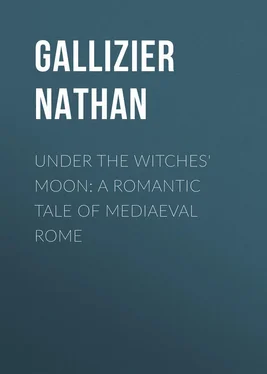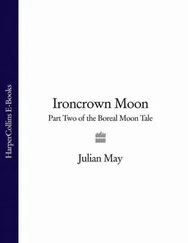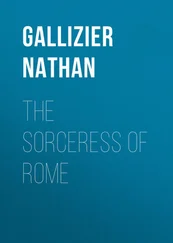Nathan Gallizier - Under the Witches' Moon - A Romantic Tale of Mediaeval Rome
Здесь есть возможность читать онлайн «Nathan Gallizier - Under the Witches' Moon - A Romantic Tale of Mediaeval Rome» — ознакомительный отрывок электронной книги совершенно бесплатно, а после прочтения отрывка купить полную версию. В некоторых случаях можно слушать аудио, скачать через торрент в формате fb2 и присутствует краткое содержание. Издательство: Иностранный паблик, Жанр: foreign_antique, foreign_prose, на английском языке. Описание произведения, (предисловие) а так же отзывы посетителей доступны на портале библиотеки ЛибКат.
- Название:Under the Witches' Moon: A Romantic Tale of Mediaeval Rome
- Автор:
- Издательство:Иностранный паблик
- Жанр:
- Год:неизвестен
- ISBN:нет данных
- Рейтинг книги:4 / 5. Голосов: 1
-
Избранное:Добавить в избранное
- Отзывы:
-
Ваша оценка:
- 80
- 1
- 2
- 3
- 4
- 5
Under the Witches' Moon: A Romantic Tale of Mediaeval Rome: краткое содержание, описание и аннотация
Предлагаем к чтению аннотацию, описание, краткое содержание или предисловие (зависит от того, что написал сам автор книги «Under the Witches' Moon: A Romantic Tale of Mediaeval Rome»). Если вы не нашли необходимую информацию о книге — напишите в комментариях, мы постараемся отыскать её.
Under the Witches' Moon: A Romantic Tale of Mediaeval Rome — читать онлайн ознакомительный отрывок
Ниже представлен текст книги, разбитый по страницам. Система сохранения места последней прочитанной страницы, позволяет с удобством читать онлайн бесплатно книгу «Under the Witches' Moon: A Romantic Tale of Mediaeval Rome», без необходимости каждый раз заново искать на чём Вы остановились. Поставьте закладку, и сможете в любой момент перейти на страницу, на которой закончили чтение.
Интервал:
Закладка:
"A good beginning indeed!" she said. "You are in favor, my lord! To have seen her fair face is no small boast, but to be summoned to her presence – I cannot remember her so gracious to any one, since – " she paused suddenly, deliberately.
Tristan regarded her slantwise over his shoulder, without making response. At last, irritated, he knew not why, he asked curtly: "What is your mistress?"
The girl's glance wandered over the great trees and flowers that overshadowed the plaisaunce.
"She bears her mother's name," she replied with a shrug, "and, like her mother, the blood that flows in her veins is mingled with the fire that glitters in the stars in heaven, a fire affording neither light nor heat, but serving to dazzle, to bewilder. – I am but a woman, but – had I your chance of fortune, my lord, I should think twice, ere I bartered it for a vow, an empty dream."
He gave her a swift glance, wondering at her woman's wit, yet resenting her speech.
"You would prosper?" she queried tentatively at last, casting about in her mind, how she might win his confidence.
"I have business of my own," he replied, evading her question.
She looked up at him, her eyes trembling into his.
"How tall and strong you are! I could almost find it in my heart to love you myself!"
The flattery seemed so spontaneous that it would have puzzled one possessed of greater guile than Tristan to have uncovered her cunning. Nor was Tristan unwilling to seem strong to her; for the moment he was almost tempted to continue questioning her regarding her mistress.
"You may make your fortune in Rome," the girl said with a meaning smile.
"How so?"
"Are you blind? Do you not know a woman's ways? My mistress loves a strong arm. You may serve her."
"That is not possible!"
The girl stared at him and for the moment dropped the mask of innocence.
"What was possible once, is possible again," she said.
Then she added:
"Are you not ambitious?"
"I have a task to perform that may not permit of two masters! Why are you so concerned?"
The question came almost abruptly.
"I serve my lady!" she said, edging towards him. "Is it so strange a thing to serve a woman?"
They had left the garden and had arrived before a high stone wall that skirted the precincts of Theodora's palace. Cypresses and bays raised their tops above the stones. Great cedars cast deep shadows. In the wall there was a door studded with heavy iron nails. The girl took a key that dangled from her girdle, unlocked the door and beckoned to Tristan to enter.
Tristan stood and gazed. In the light of the moon which drenched all things he saw a garden in which emerald grass plots alternated with beds of strange-tinted orchids, flowers purple and red. At the end of the plaisaunce there opened an orange thicket and under the trees stood a woman clad in crimson, her white arms bare. She wore sandals of silver, and her dusky hair was confined in a net of gold.
As Tristan was about to yield to the overmastering temptation the memory of Hellayne conquered all other emotions. He turned back from the door and looked full into the girl's dark eyes.
"You will speak to your mistress for me," he said to her, casting a swift glance into the moonlit garden.
The girl looked at him with a puzzled air, but did not stir.
"What am I to say to her?" she said.
"That I will not enter these gates!"
"You will not?"
"No!" He snapped curtly.
"Fool! How you will regret your speech!"
Her face changed suddenly like a fickle sky, and there was something in her eyes too wicked for words.
Without vouchsafing a reply, Tristan turned and lost himself in the desolation of Mount Aventine.
The night marched on majestically.
The moon and her sister planets passed through their appointed spheres of harmonious light and law, and from all cloisters and convents prayers went up to heaven for pity, pardon and blessing on sinful humanity that had neither pity, pardon nor blessing for itself, till, with magic suddenness, the dense purple skies changed to a pearly grey, the moon sank pallidly beneath the earth's dark rim and the stars were extinguished one by one.
Morning began to herald its approach in the freshening air.
Tristan still slept on his improvised couch, a marble slab he had chosen when he discovered that he had lost his way in the wilderness of the Aventine. His head on his arm he lay quite still among the flowers, wrapt in a sort of dizzy delirium in which the forms of Theodora and Hellayne strangely intermingled, until the riddles of life were blotted out together with the riddles of Fate.
CHAPTER VI
THE COUP
Tristan spent the greater part of the day visiting the churches and sanctuaries, offering up prayers for oblivion and peace. His heart was heavy within him. Like the stray leaf that has been torn from its native branch and flutters resistlessly, aimlessly hither and thither, at the mercy of the chance breeze, nevermore to return to its sheltering bough, so the lone wanderer felt himself tossed about by the waves of destiny, a human derelict without a haven where he might escape the storms of life. Guiltless in his own conscience of an imputed sin, in that his love for Hellayne had been pure and holy, Tristan could find little comfort in the enforced penance, while his hungry heart cried out for her who had so willed it. And, as with weary feet he dragged himself through the streets of the pontifical city, he vaguely wondered, if his would ever be the peace of the goal. In the darkness in which he walked, in the perturbation of his mind, he longed more than ever to open his heart to some one who would understand and counsel and guide his steps.
The Pontiff being a prisoner in the Lateran, Tristan's ardent wish to confide in the successor of St. Peter had suffered a sudden and a keen disappointment. There were but Odo of Cluny, Benedict of Soracté or the Grand Penitentiary, holding forth in the subterranean chapel at St. Peter's, to whom he might turn for ease of mind, and a natural reluctance to lay bare the holiest thoughts man may give to woman, restrained him for the nonce from seeking these channels.
Thus three days had sped, yet naught had happened to indicate that events would shape the course so ardently desired by Tristan.
It was there, on one of the terraces crowning the splendid heights of immortal Rome, with a view of the distant Sabine and Alban hills, fading into the evening dusk, that the memory of the golden days of Avalon returned to him in waves of anguish that almost mastered his resolve to begin life anew under conditions that seemed insupportable.
Again Hellayne was by his side, as in dream-forgotten Avalon. Again side by side they wandered where the shattered columns of old grey temples, all that remained of a sunny Greek civilization of which they knew nothing, crowned the heights above the lazy lapping waves of the tideless Tyrrhenian sea. There, for whole hours would they sit, the air full of the scent of orange and myrtle; under almond trees, covered with blossoms that sprinkled the emerald ground like rosy snowflakes, and watch the white sails of the far feluccas that trailed the waves in monotonous rhythm to or from the sunlit shores of Africa. The distant headlands looked faint and dreamy, and the sparkling sea broke, gurgling, foaming among the rocks at their feet, as it had broken at the feet of other lovers who had sat there centuries ago, when those shattered columns had been white in their freshness and the temples had been wreathed with the garlands of youth. And the eternal waves said to them what they had said to the dead and forgotten; and the fickle winds sang to them what they had sung to the fair and the nameless, and they stretched forth their hands, and saw but the sea and the sun.
Читать дальшеИнтервал:
Закладка:
Похожие книги на «Under the Witches' Moon: A Romantic Tale of Mediaeval Rome»
Представляем Вашему вниманию похожие книги на «Under the Witches' Moon: A Romantic Tale of Mediaeval Rome» списком для выбора. Мы отобрали схожую по названию и смыслу литературу в надежде предоставить читателям больше вариантов отыскать новые, интересные, ещё непрочитанные произведения.
Обсуждение, отзывы о книге «Under the Witches' Moon: A Romantic Tale of Mediaeval Rome» и просто собственные мнения читателей. Оставьте ваши комментарии, напишите, что Вы думаете о произведении, его смысле или главных героях. Укажите что конкретно понравилось, а что нет, и почему Вы так считаете.












